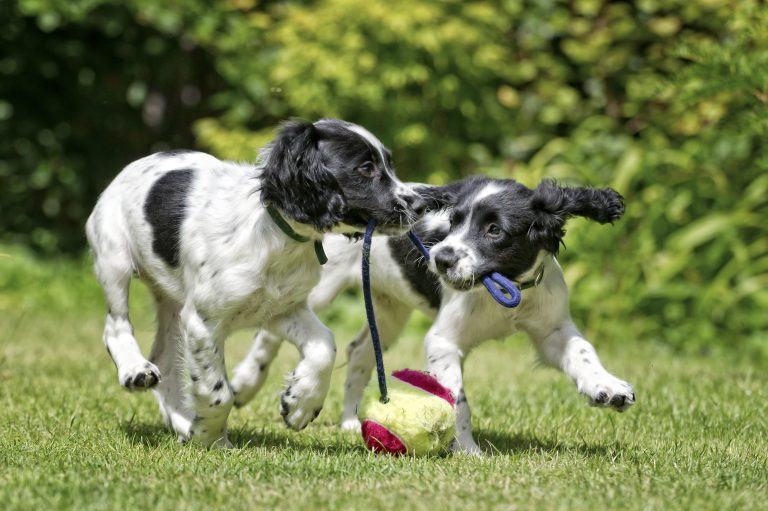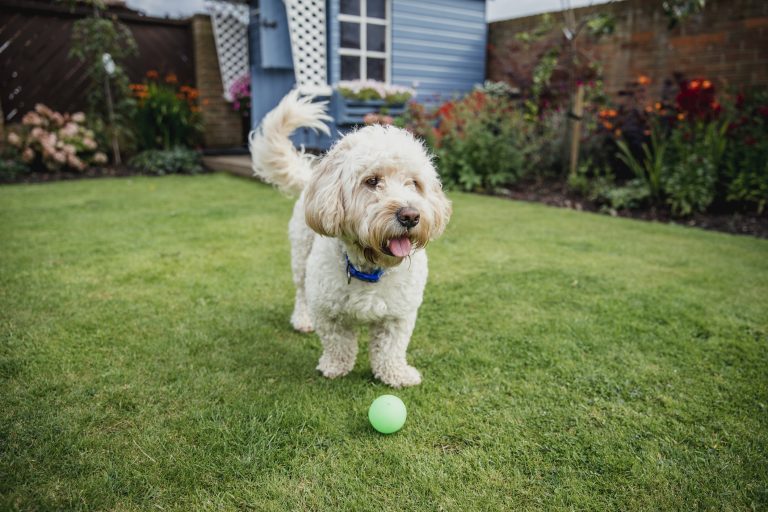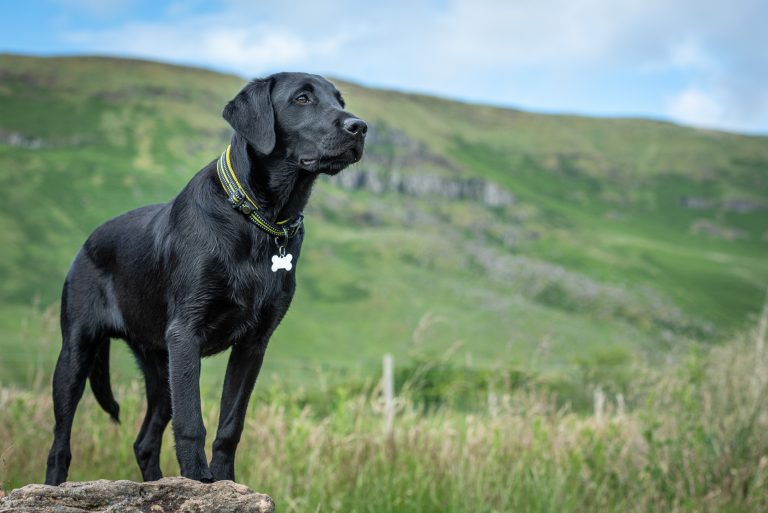At Barking Mad, we believe that the time we have with our dogs is never long enough! However, understanding a dog’s life cycle allows us to appreciate each stage. It also helps us to understand our canine best friend’s behaviour and know what to expect in the next stage.
Research from the RSPCA has shown that the average lifespan for purebred dogs is 11.9 years, with crossbred dogs averaging a longer 13.1 years. This obviously varies from breed to breed and dogs transition through the four stages of their life cycle at different speeds. The rate of ageing is determined by factors such as genetics, nutrition and quality of care.
Dogs are more than just pets, they are beloved members of our families, offering us companionship, loyalty, and joy. As they grow, their needs evolve, requiring us to adapt our care to meet them at each stage of life. From the playful days of puppyhood to the slower, more serene pace of their senior years, understanding the life cycle of a dog is essential for ensuring they live a happy and healthy life. In this blog, we will explore the different stages of a dog’s life and offer practical tips on how to care for your furry friend at every age, so you can provide them with the love and attention they deserve at every stage of their life.
Puppy Stage (Birth to 6–18 Months)

What to Expect: Puppies start life blind, deaf, and completely dependent. At around 2–3 weeks, puppies start to see and hear and are able to stand and move around a little. With their senses developed, they now start to learn about their surroundings. This is the prime time to learn how to interact with humans and other pets. Within a few weeks, they begin to explore the world through their senses, and by eight weeks, they’re usually ready to leave their mum and litter.
Care Tips:
-
Socialisation is crucial during weeks 3–12. Gently introduce your pup to various people, sounds, and experiences.
-
Begin basic training and housebreaking early, using positive reinforcement.
-
Ensure your puppy receives the full schedule of vaccinations and vet check-ups.
-
Choose safe toys to stimulate learning and satisfy teething urges.
Going Away? Young puppies need consistency and patience. Our one-to-one dog boarding pairs pups with carefully matched hosts who can provide the gentle care and attention they need while you’re away.
Adolescent Stage (6–36 Months)

What to Expect: Welcome to the teenage years! Your dog may test boundaries, forget training, or exhibit hormonal behaviours if unneutered. You may notice your dog being reluctant to pay attention and more likely to exhibit undesirable behaviour. Female adolescent dogs will go into heat and male adolescent dogs will become more interested in marking with urine and sniffing.
The adolescent dog stage may continue until your dog reaches 18–24 months for smaller breeds and up to 36 months in larger breeds. Training using gentle and consistent methods is highly recommended for adolescent dogs and can help to stop behavioural problems. You can find a reputable dog trainer near you by visiting the Association of Pet Dog Trainers’ website.
Care Tips:
-
Continue training and socialisation, keeping sessions fun and reward-based.
-
Exercise and mental stimulation are essential to channel energy positively.
-
Address any behavioural hiccups early, ideally with help from a qualified dog trainer.
Going Away? An adolescent dog needs routine and activity. Barking Mad hosts offer consistent care and exercise tailored to suit their developmental needs.
Adult Stage (18 Months to 7–10 Years)

What to Expect: The adult stage of a dog’s life cycle begins at about 18 months for smaller breeds and up to 3 years for larger breeds. Dogs become easier to manage, as their earlier training pays off, although they still enjoy walks, play and mental stimulation. It is a great time to find activities that you and your dog can enjoy together, such as agility classes or hill walking.
Care Tips:
-
Maintain a regular exercise routine and provide enrichment through games or sports like agility or scent work.
-
Feed a balanced diet suited to your dog’s size, breed, and activity level.
-
Schedule annual vet check-ups to monitor ongoing health.
Going Away? Active dogs thrive in homes where they can stay mentally and physically engaged. We’ll match them with a host who can keep up with their energy and routines.
Senior Stage (7–10 Years and Beyond)

What to Expect: Dogs cycle through their life quickly and they fill our lives with so much joy. It is important to cherish each stage as a dog’s golden years will begin roughly between the ages of 7 and 10. Their muzzle will tend to become grey and they will slow down, preferring a quiet stroll to an energetic run. More sleep is needed and joint or dental problems are common. It is vital to keep up with regular vet visits.
Care Tips:
-
Adjust their diet and exercise for lower energy levels and joint health.
-
Keep an eye on behaviour changes — they could signal medical issues.
-
Prioritise regular vet visits for preventive care.
Going Away? Older dogs often need quiet environments and gentle care. Barking Mad provides a calm, loving home where they can rest comfortably, keeping to familiar routines.
Peace of Mind with Barking Mad Dog Care
No matter which stage of life your dog is in, Barking Mad offers personalised, one-to-one home dog boarding that suits their age, temperament, and specific needs. From bouncy puppies to dignified seniors, we carefully match each dog with a host family who will love and care for them as their own — all in a cosy, home-from-home environment.
All dogs must be fully vaccinated to stay with us, and we’ll always work with you to find the right host for your pooch (subject to availability).
Ready to learn more? Visit our How It Works page and discover how Barking Mad makes dog care feel just like home — because every stage of your dog’s life deserves the very best.




